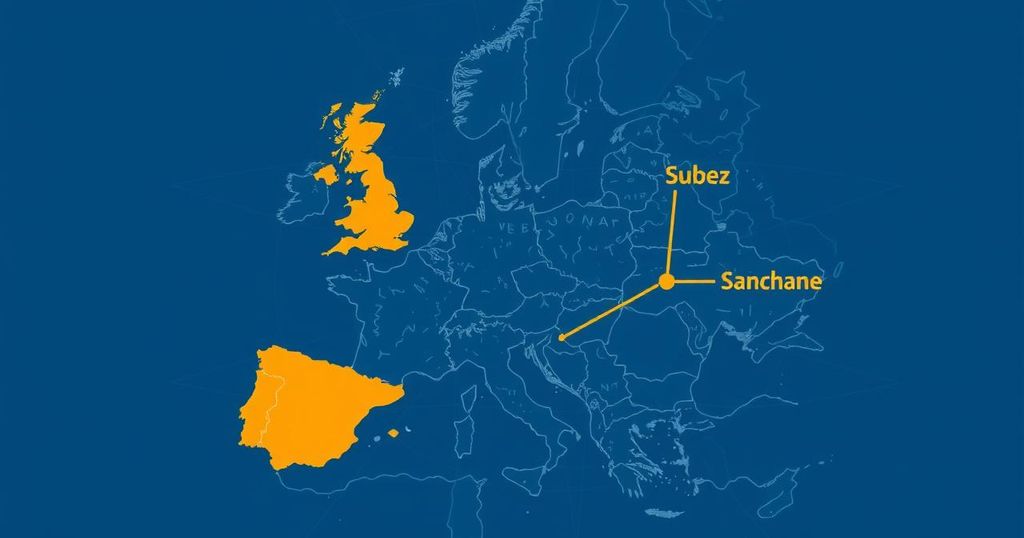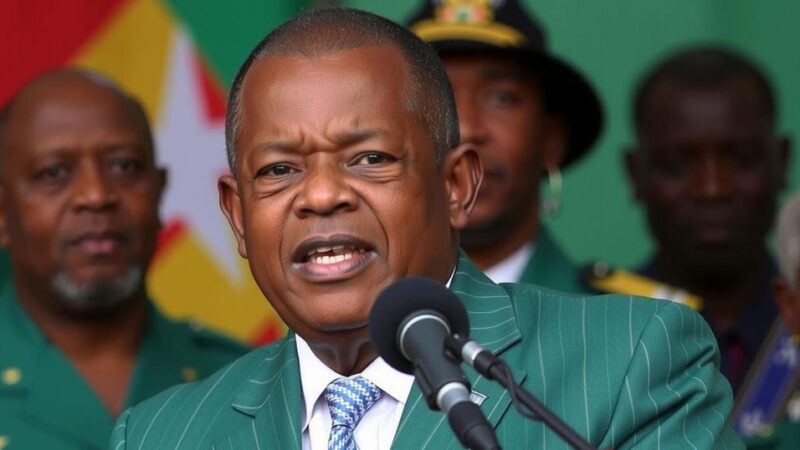The European Union is considering countries like Uganda and Uzbekistan to host unwanted migrants as part of new proposals to manage asylum seekers. This initiative arises amid a growing influence of anti-immigration forces within the EU. The effectiveness and legality of such measures remain uncertain, leading to complex discussions at the EU level.
The European Union (EU) is currently exploring options for countries to accept migrants whom the bloc deems undesirable, following a recent summit where prominent EU leaders have supported innovative strategies for managing asylum seekers. Among the proposals being considered are the establishment of “return hubs,” which could serve as transit centers for those who have been denied asylum, akin to a previously proposed British initiative involving the deportation of failed asylum seekers to Rwanda. These developments come at a time when anti-immigration sentiments are gaining traction within Europe, as seen in recent election successes for hard-right parties in several member states, including Austria, Germany, and the Netherlands. European Commission President Ursula von der Leyen acknowledged the challenges of implementing such policies, including the potential duration of detention at return hubs, particularly in light of international obligations to protect individuals from war or abuse. At this stage, no specific country has been definitively selected as a destination for these return hubs, although the Netherlands has made a suggestion for Uganda, while Italy is considering returning refugees to Syria. Concurrently, Germany has initiated discussions with Uzbekistan as a potential partner in accepting deported refugees, which may also include provisions for migrant workers from the region. Despite these discussions, considerable uncertainty remains regarding the feasibility of these measures given legal restrictions and humanitarian concerns. Observations have been made regarding Italy’s initiative to process asylum claims in Albania, which has faced early logistical issues with migrants being returned to Italy due to uncertainties surrounding their age and health. The EU has compelled member states to take decisive action to increase and expedite deportations, with estimates indicating that only a fraction of those denied asylum are currently returned to their countries of origin. As discussions progress, the EU continues to assert that the right to seek asylum will remain part of its fundamental principles, yet debates surrounding stricter asylum policies and management strategies are likely to continue, particularly under the scrutiny of domestic and international law regarding the treatment of migrants and refugees.
In the context of increasing migration flows and rising anti-immigration sentiment in Europe, the EU is re-evaluating its approach to handling asylum seekers. Traditionally, Europe has maintained a commitment to asylum rights; however, recent electoral outcomes have shifted the political landscape, prompting calls for more stringent measures. The proposed approach involves the establishment of return hubs and the relocation of asylum seekers to third countries, which raises questions about international law and human rights obligations. Notable discussions have surfaced regarding potential partnerships with countries such as Uganda and Uzbekistan, as Europe seeks innovative solutions to manage its asylum system amid complex geopolitical and humanitarian considerations.
The exploration of return hubs and the relocation of migrants reflect the EU’s ongoing struggle to balance the principles of asylum with the growing demands for stricter immigration controls. While proposals from various member states indicate a willingness to collaborate with external nations, serious legal and ethical questions loom over the practicality of these strategies. The situation underscores the necessity for the EU to navigate the complexities of international law while responding to evolving political pressures regarding immigration. The future of asylum rights in Europe remains uncertain as discussions continue among member states.
Original Source: www.thenationalnews.com






